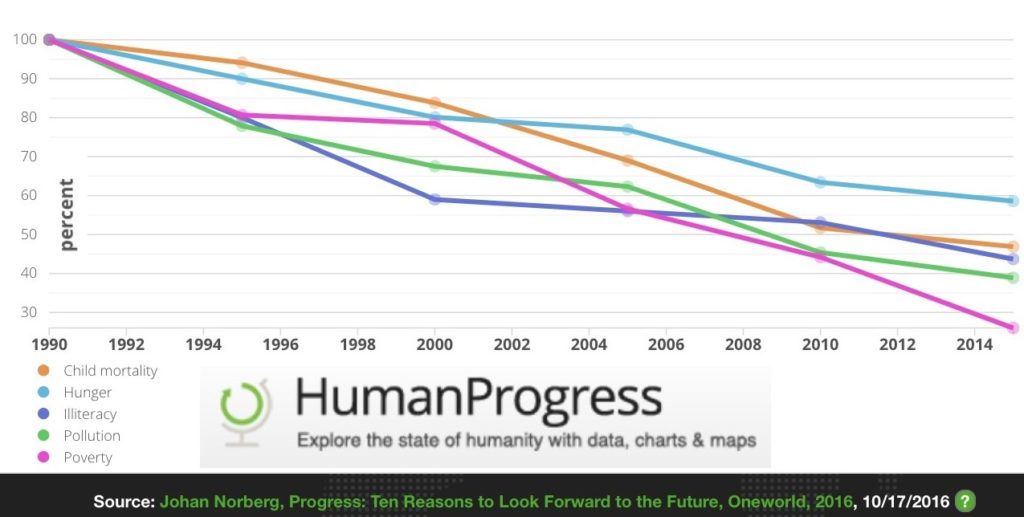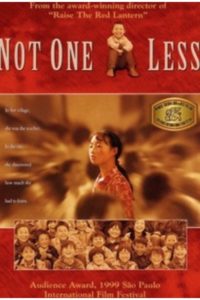Stability and Prosperity from Nationalism or Globalism?
It is very, very good news for the coming decades for hundreds of millions to find the path to prosperity. That path usually with a bus ticket to a city to look for work. In cities poor villagers can tap into the global economy earning wages higher than available in rural areas.
Want To Help Someone In A Poor Village? Give Them A Bus Ticket Out, (NPR Morning Edition, December 28, 2017) offers an example:
Beginning in 2008, Mobarak and various collaborators set up a series of experiments. During the monga season, they give farmworkers a one-time, very low-interest loan — it’s now about $19 — that they can use to get to the city.
“We chose that amount because it pays for the round-trip bus fare — plus a few days of food,” says Mobarak.
The result: The villagers who’ve been offered the help have been about 60 percent more likely to try their luck in a city. In virtually all cases, it has been the men in a family who’ve made the journey. And once there, the vast majority of them have succeeded in getting a temporary job — mainly pulling rickshaws. Most significantly, with the extra money, their families have consumed an average of at least 36 percent more food. That is a much better track record than the traditional food-for-work or food distribution programs. “About five times as cost-effective,” notes Mobarak.
The global economy expands with the hundreds of millions more now working full-time or part-time in the world’s cities. Shanty-towns around developing world cities offer cleaner water, more light, and more opportunity compared to rural villages people migrate from.
HumanProgress.org charts gains over the last 25 years, Showing worldwide declines in child mortality, hunger, illiteracy, pollution, and poverty.
Hernando de Soto’s 2011 documentary Globalization at the Crossroads looks at the central role of legal institutions enabling the poor to engage in exchange, open enterprises, and register their property.
Poor people are migrating to the world’s cities in astounding numbers, embracing globalization despite the risks and when the laws they encounter don’t work for them, they create their own.
Their quest is no different than millions of Europeans, Americans, and Japanese over the past two hundred years. They too migrated by the millions, broke the back of the old order with new legal systems to launch the industrial revolution that became globalization.
Migration to cities has been a global story and in cities people gain opportunities to buy and sell goods and services with others around the world. Nations and nationalism play no role or no positive role in this process. Borders place limit on legal migration (though China also restricts legal migration within its borders).
Hernando de Soto runs the Institute for Liberty and Democracy (ILD) and through research and consulting works to persuade governments to recognize the informal legal norms that already operate among the poor.
These issues matter because the traditional faith in nation-states can cloud thinking about troubled nations like Iraq, Libya, and Afghanistan. These are artificial countries left over from colonial times. It will be left to local tribes (or ethno-religious groups) living in the cities within the borders of Libya to decide if they want a future democratic nation-state to continue, or whether a formal or informal alliance of cities and regions might suit them better. (From Brookings Institution ten years ago: The Case for Soft Partition in Iraq and from the Council on Foreign Relations, Plans for Iraq’s Future: Federalism, Separatism, and Partition).
Consider the different histories and institutions of Egypt and Libya:
“There are, in Egypt, some well-established national institutions such as the armed forces, the government, the judiciary,” he said. “They may not be perfect, but they are established. There’s nothing comparable in Libya.”
An alternative to nationalism–which should be familiar to Americans–is federalism. Libya, Iraq, Syria could flourish as federal republics, providing a kind of soft-partitions protecting ethno-religious group from political control by central or national governments. That means the central government shouldn’t control or finance education, for example. Otherwise, whichever tribal alliance gains power by majority voting can (and likely will) push its doctrines on other tribes.
Nationalist scholars have long claimed national governments are sources of stability and prosperity. Every crisis brings media reporting of government officials meetings and new plans, initiatives, and policies, pretending they know what is going on and what should be done. Congress, the Federal Reserve, and Federal regulatory agencies claim to be fine-tuning the economy, protecting workers and consumers from predatory business practices, and securing the general welfare.
Not states but cities are the dynamic engines of economic development. People gathering together in cities create ever more opportunities for gains from exchange, gains from specialization and division of labor, and gains from cross-fertilizing technologies and enterprises. Successful cities don’t need to be as big or a prosperous as New York City or Boston or London, but they do need enough economic freedom to maneuver around local officials and entrenched elites. Cities like Cleveland and Detroit are burdened with thousands of regulations, licensing restrictions, arbitrary taxes, and corrupt city agencies, and now lack prosperous industries creating enough wealth to cover their tax and regulatory overhead (see What Detroit can Learn from Bangalore for examples).
A century and a half ago, New York City was as poor as any big city in today’s developing world. Horatio Alger, Jr.’s popular novel, “Ragged Dick or Street Life in New York with the Bootblacks.” This short novel is full of scenes of 1860s New York City street life. Though written for young people, Alger’s novels on “Street Life in New York City” are realistic, fun, and fascinating. They tell stories relevant to all times and places: success is never certain but progress depends on the everyday virtues of honesty, savings, and self-improvement.
Alger’s novels are full of scoundrels. Young americans would do well to learn more of the many deceptions and cons surrounding them, preying on those wishing too much for too little. We regularly hear get-rich-quick ads on TV or talk radio, read or glance at endless email scams, and hear the misleading statements made daily by politicians. These are all tricks and deceptions similar to those practiced daily in 1860s New York City.
On the other side of the planet a century and a half later, the Chinese movie of rural China, “Not One Less” tells the story of a young girl teaching at a village school. The movie’s realistic portrayal of rural poverty explains why tens of millions of Chinese migrate illegally to cities. The young teacher is told she will be paid only if no students run away to the nearby city.
The movie has a surprise at the end, and there is a key scene when the runaway boy is being driven back from the city and interviewed by TV reporters. They ask about city life (where he was alone and hungry before clearing tables at a small restaurant): “The city was wonderful,” he says, smiling.
I wonder if Horation Alger novels are available in the developing world? I just finished “Ben, the Luggage Boy” and it includes footnotes where Alger cites newspaper articles or personal interviews with the real boys whose stories are part of the novel. I expected in Alger’s novels to have fanciful rags to riches themes (“Horatio Alger stories”). But in the dozen or more I’ve read, the stories are more “rags to a new suit and entry-level job.” The key is always the decision to think ahead, and the decision to begin the discipline of savings and self-improvement. Each young man is struggling upward, through a world of opportunities, but also through a world teaming with con-artists, thieves, bullies, and occasional friends and mentors.
In Ben the Luggage Boy, a stubborn ten-year-old runs away to New York City after a fight with his father. Arriving in the city, he looks around for work and learns quickly from other street kids. Like a cat gone feral he gradually learns to get by making enough day-to-day, but slowly forgetting his early home life and book-learning. He adjusts to enjoy life in the city, with its wide variety of work and fun, including occasional cheap cigars and evening entertainment. Later an incident motivates “our hero” to reform and start savings.
A similar story of rural poverty to city opportunities to engage the global economy is told by successful Hong Kong entrepreneur Jimmy Lai in the Izzit.org video segment “A Taste of Chocolate” (after brief introduction).
What does all this have to do with globalism and nationalism? Well, consider the numbers: New York City in 1870 was home to over 1 million of which at least 500,000 were immigrants. In 2010, New York City is listed as having nearly 10 million, and 350 cities around the world have over one million residents. None are as economically free as New York City was in 1860, but now all have relatively cheap clothes, Internet, and cell-phones. Increased trade, travel, and international investment, combined with communications technologies, open the door for tens of thousands of new textile, light manufacturing, and service enterprises. Teenagers in rural India advise grandfathers in America how to operate their cell phones and computers (though partly because U.S. regulations make it difficult for U.S. teens to provide consulting services for pay). Communications technologies cheap in any city open windows to the world.
[This post is adapted from earlier DailySpeculations post: “Street Life in New York City and in Cities Around the World.”]
[Update] For more on the economics of nationalism and globalism, see Foreign Policy, by Bettina Bien Greaves. Bettina long worked at the Foundation for Economic Education and each year prepared market-oriented research materials on national high school debate topics.
This nationalism/globalism article is also on page 127 (120) in Liberalism, Values, and Lincoln Douglas Debate, a compilation of debate topic articles from LD/Extemp Monthly, Econ ’87, and Econ (past newsletters for speech and debate students). This 165-page compilation is in pdf format here: liberalvaluesld
